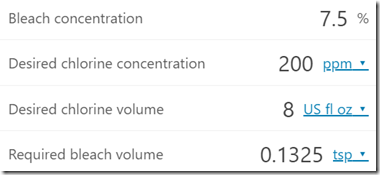As many people are learning, if there is a virus that impacts chicken flocks like the Avian Flu, and you compound it with new laws that make it more expensive for egg producers to sell their products, then consumers suffer with higher egg prices. It is almost like somebody could have predicted the higher egg prices.
Anyway, because of the higher prices, we are seeing more backyard chicken flock owners getting into the business of selling their eggs.
Colorado has a pretty good Cottage Foods Act that makes is easy to package products and sell them on the open market. Basically, the seller needs to take some training and pass an exam, and then they need to package their product according to the rules outlined in the law.
The below information is not an authorized source, however, I have tried to provide the proper links to authoritative sources.
Limitations
- No more than 250 dozen eggs may be sold per month. That is a pretty large number of eggs.
- Eggs must be delivered directly from producer or a knowledgeable agent to an informed end consumer and cannot be resold.
- Eggs can’t be sold to restaurants or grocery stores.
- Eggs may only be sold in Colorado.
- At the point of sale, you must clearly display a placard, sign or card with the following disclaimer: “This product was produced in a home kitchen that is not subject to state licensure or inspection. This product is not intended for resale.”
- Must use only new, clean, unused egg cartons.
- Must store eggs at 41°F or below.
Training
There are three options available for approved training.
- Option 1 – Attend the Food Safety Training for Colorado Cottage Food Producers course provided online by Colorado State University Extension which is good for three years. The course is about 2.5 to 3 hours long.
- Option 2 – Take the Food Handlers Card course, also available online as self-study. It takes approximately 30 minutes. I found this course was lacking on lots of specific information for eggs.
- Option 3 – Attend a food safety course provided by your local Public Health Agency.
Egg Handling Basics
Keep the work area clean and sanitized. Clean work surfaces with soap and water, rinse them with plain water, and then spray or wipe them down with a sanitizer. A sanitizer solution can be made by mixing 1/8 teaspoon unscented, regular bleach (8.25%) with 16 ounces of water. Note that not all bottled bleach is the same strength. The bleach that I buy, for example, is 7.5%. You can find calculators online, but here is one that works well.
Eggs are to be washed and  sanitized. Wash eggs using unscented dishwashing liquid or another food-grade detergent using water between 110°F and 120°F. Sanitize by dipping or spraying eggs with 120°F water and bleach at 100-200 PPM chlorine.
sanitized. Wash eggs using unscented dishwashing liquid or another food-grade detergent using water between 110°F and 120°F. Sanitize by dipping or spraying eggs with 120°F water and bleach at 100-200 PPM chlorine.
Additional information can be found here.
Labeling
Eggs must be handled and labeled in accordance with the requirements outlined in Section 35-21-105 CRS
and include the following information:
- Address where the eggs originated.
- Packaging date.
- Disclaimer: “Safe Handling Instructions: To prevent illness from bacteria, keep eggs refrigerated, cook eggs until yolks are firm, and cook any foods containing eggs thoroughly. These eggs do not come from a government-approved source.”
Where Can Eggs be Sold?
- On the premises
- Farmers markets
- Internet
- Community-supported agricultural (CSA) )organizations
- Road side stands
Key Laws
Please refer to the following Colorado Revised Statutes for more information:
- 25-4-1614
- 35-21-103
- 35-21-105
- 35-21-106
